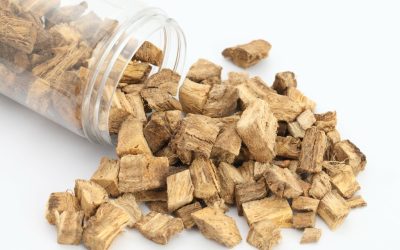It’s also considered more polite to use a cloth tissue rather than a disposable one unless you are sick. After sneezing, it’s best to return to the conversation as if nothing happened, and those around should also pretend not to have noticed. Sneezing is a reflex that involves the rapid expulsion of air to clear the nasal mucosa of allergens, nasal and what is alcoholism pharyngeal infections, dust, and impurities.
Allergy Types that Alcohol Worsens
You are now leaving thermofisher.com and going to questdiagnostics.com owned and operated by an independent third party. Thermo Fisher Scientific is not responsible or liable for the content or services of questdiagnostics.com. Thermo Fisher Scientific does not represent either Quest Diagnostics or the customer if the two enter into a transaction. Privacy and security policies of questdiagnostics.com may differ from those practiced by thermofisher.com.
Does Alcohol Intensify Allergies? Unveiling the Truth
Sulfites are preservatives, and most countries permit their addition to alcoholic drinks such as beer and wine. However, some people may experience allergy-like reactions after consumption. Other genetically determined variations in the first enzyme involved in alcohol breakdown can cause similar symptoms in people of non-Asian descent, although this is less common. Alcoholic sneezing occurs in people who are allergic to alcohol and is often a symptom of this characteristic allergy. What does it mean that sneezing after drinking alcohol may be allergic? Ingredients that cause allergic hypersensitivity are used to produce alcohol.
It occurs when your body has difficulty metabolizing the histamines found in certain foods and drinks, such as wine or beer. If you experience sudden sneezing after consuming these beverages, it may be an indication of histamine intolerance. The key to managing histamine intolerance is to recognize which foods and drinks are high in histamine levels and avoid them. You now know the causes of a stuffy nose after drinking alcohol, so you should learn how to treat it.

Can I prevent sneezing after eating?
This effect can also make you feel hot when alcohol and sneezing you drink alcohol, but it can also lead to short-term nasal congestion. The blood vessels around your nasal cavity can expand, making it a bit more difficult to breathe normally. While alcohol content does not directly cause sneezing, it can contribute to nasal congestion or irritation, potentially triggering sneezing in some individuals. Yes, individuals with pre-existing allergies or sensitivities to certain substances may be more prone to sneezing after drinking alcohol.
- An alcohol allergy and alcohol intolerance are two different conditions.
- Consuming alcohol can also increase the risk of severe allergic reactions (anaphylaxis) from other causes such as food.
- Alcoholic drinks have a natural vasodilatory effect which expands blood vessels.
- Thermo Fisher Scientific is not responsible or liable for any content or services of ondemand.labcorp.com.
- Certain individuals experience intolerance reactions to sulfites, resulting in symptoms like facial redness, headaches, or breathing issues.
If you’re allergic to any of the ingredients in a mixed drink, you may want to avoid it. This dilation occurs first in the brain, so you may feel flushed or warm after only a few sips of alcohol. The dilation then extends to blood vessels throughout your https://catalogo.expertchefrm.com/aa-intergroup-alcoholics-anonymous-houston-texas/ body, including those in your nose. If you react strongly to alcohol, but have a hard time reducing your drinking, Ria Health can help. We offer online support to help you quit or cut back, including medication, coaching, and app-based tools.

Does Drinking Alcohol Cause Nasal Congestion?
- Finally, the taste of red wine itself can also cause sneezing in some people.
- The underlying mechanism involves the body’s inability to process certain substances.
- This reaction can be puzzling and uncomfortable, particularly if it occurs frequently.
- Consuming alcohol in large amounts (alcohol toxicity), can have negative effects on the liver, stomach, brain and mental functioning.
- However, only two of the 68 participants have a medically diagnosed allergy.
Some ethnicities, such as Asians, have inherited genetic traits that increase their risk for this reaction as well as other symptoms. These compounds are often added to beer and wine to limit the growth of yeast and act as a preservative. Common sulfites include potassium bisulfite or potassium metabisulfite.
Booze can cause us to experience everything from headaches to nausea the morning after, and can also impact on mental health conditions, such as anxiety or depression, too. It could be a sign that you actually have an allergy, or an intolerance. Alcohol can lead to asthma attacks in some individuals, particularly those with a sensitivity or allergy to alcohol. The symptoms are similar to those caused by histamine intolerance and can easily be confused with allergy-like symptoms.
Additionally, when you consume alcoholic beverages, your blood vessels widen and cause more blood to flow to the nasal tissues, leading to additional swelling. An alcohol intolerance, or ingredients like histamines in alcohol cause an allergy-like reaction in drinkers, swelling the the mucosal membranes in the nasal passages and airways. Avoiding problematic ingredients or taking a supplement to reduce acetaldehyde buildup and intolerance symptoms can help prevent nasal congestion from drinking. Symptoms often appear shortly after consuming alcohol and may require immediate medical attention, especially if severe.
- Hydration may help alleviate this symptom, but it won’t eliminate your stuffiness completely.
- Additionally, alcohol can increase the risk of certain side effects, such as nausea and dizziness.
- There are several ways for a doctor to diagnose an alcohol allergy or intolerance, including the approaches below.
- I would cry randomly, had unpredictable mood swings, and got agitated easily.
If you experience a localized reaction, such as redness or hives, then it can be concluded that an allergy to wine exists. Blood tests are also used to measure the presence of specific antibodies in your blood that may indicate an allergic reaction to wine. Generally, clear spirits like vodka, gin, and tequila have lower levels of histamines compared to aged alcohols like red wine or whiskey. Opting for clear spirits and avoiding aged beverages can reduce the risk of histamine-related allergic reactions. It can cause dehydration, leading to thicker mucus and sinus congestion.